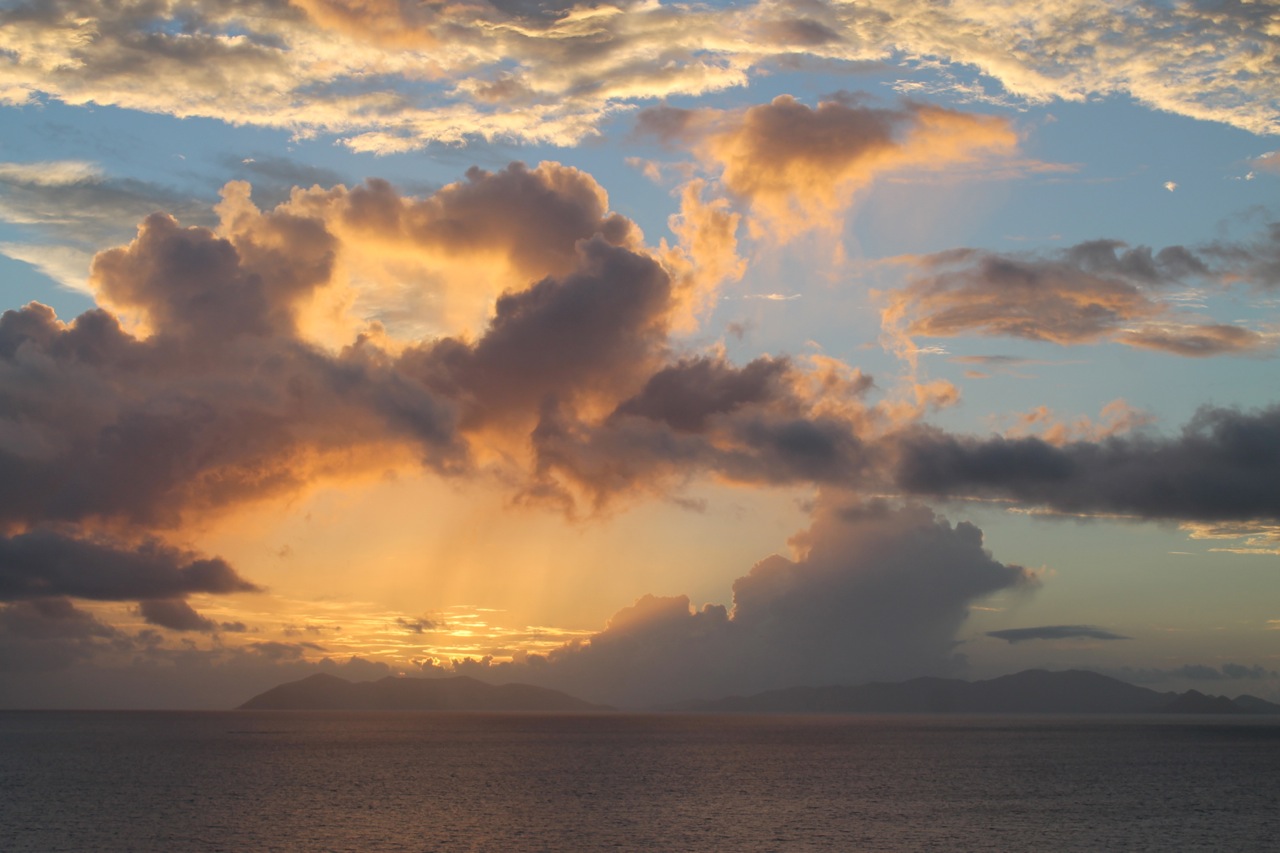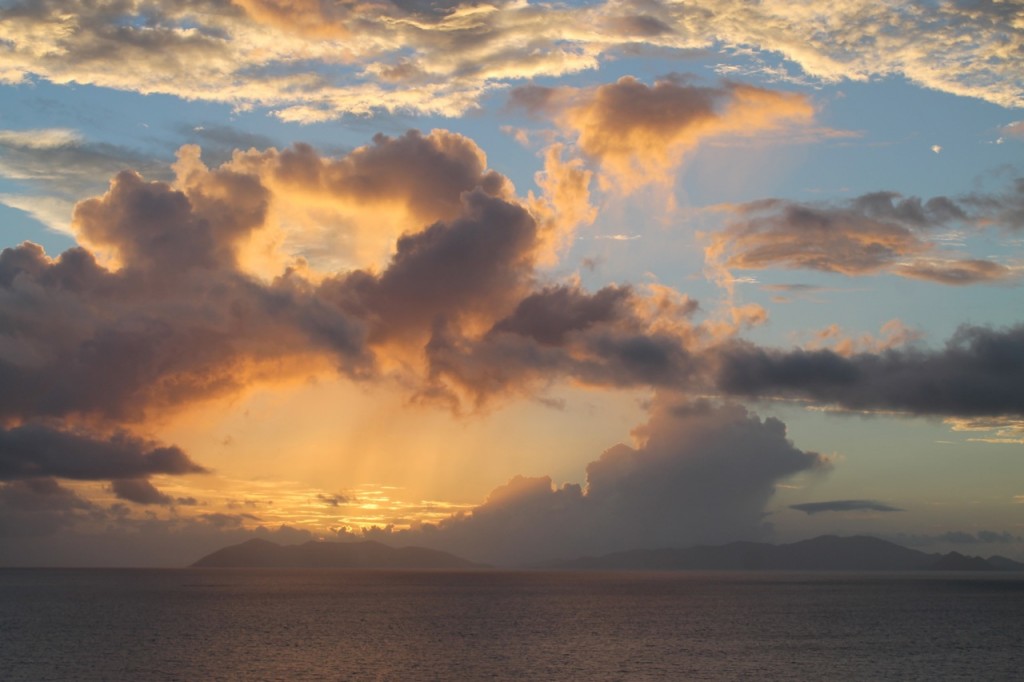“It is better to travel well than to arrive.”
~ Buddha
The first few photographs of dawn this morning were spectacular, with brilliant red and white clouds against a bright blue backdrop. I thought surely one of these would be the photo for today … Couldn’t get much prettier. But as I sat, and contemplated, amazingly, the sky gave way to the echos of my thoughts. The arch in the clouds, became the pearly gates to heaven …
Yesterday, I had guests arriving here at the villa, so per usual, I loaded up my iPod with a couple of podcasts to listen to while I cleaned. I was intrigued by the title of the selection at Audio Dharma, entitled “Meeting the Heavenly Messengers.” I was grateful to listen, to get the thoughts of the Tryvone Martin case out of my head. I’m appalled at the media circus.
Well, what a shock, as the message from Audio Dharma described in great detail the same message that I wrote about yesterday! A member of their community had passed away, and Andrea was giving a highly inspiring talk on life and death. I listened to it twice.
The traditional legend of the Buddha’s quest for enlightenment tells us that throughout his youth and early manhood Prince Siddhattha lived in complete ignorance of the most elementary facts of human life. His father, anxious to protect his sensitive son from exposure to suffering, kept him an unwitting captive in their palace. It was only on that fateful day in his 29th year, when curiosity led him out beyond the palace walls, that he encountered the four “heavenly messengers” that were to change his destiny. The first three were an old man, a sick man, and a corpse, which taught him the shocking truths of old age, illness, and death; the fourth was a wandering ascetic, who revealed to him the existence of a path whereby all suffering can be fully transcended.
To become divine messengers, the facts of aging, illness, and death must jolt us into an awareness of the fragile, precarious nature of our normal day-to-day lives. They must impress upon our minds the radical deficiency that runs through all our worldly concerns, extending to conditioned existence in its totality. Thereby they become windows opening upon the first noble truth, the noble truth of suffering, which the Buddha says comprises not only birth, aging, illness, and death, not only sorrow, grief, pain, and misery, but all the “five aggregates of clinging” that make up our being-in-the-world.
When we meet the divine messengers at this level, they become catalysts that can induce in us a profound internal transformation. We realize that because we are frail and inescapably mortal we must make drastic changes in our existential priorities and personal values. Instead of letting our lives be consumed by transient trivia, by things that are here today and gone tomorrow, we must give weight to “what really counts.”
Steve Job’s, also a student of Buddhist philosophy, sums it up like this:
“For the past 33 years, I have looked in the mirror every morning and asked myself: “If today were the last day of my life, would I want to do what I am about to do today?” And whenever the answer has been “No” for too many days in a row, I know I need to change something…almost everything – all external expectations, all pride, all fear of embarrassment or failure – these things just fall away in the face of death, leaving only what is truly important. Remembering that you are going to die is the best way I know to avoid the trap of thinking you have something to lose.”
Thinking about the heavenly messengers – sickness, old age, and finally death – does not have to be morbid. These very deep truths of our nature as sentient beings are there to awaken us to this life. Here and now.
At the end of her hour podcast, Andrea asked the same question as Steve Jobs. As we truly begin to consider it, we may begin to make radical changes in our lives. I know I have, and so I will continue. But for her, asking how she could improve on each day, even as a monk herself, she wishes she could be kinder.
How about you? If today were your last day, how would you live it? And with the grace of God, hopefully today won’t be your last. But what are you doing so that this day that you just envisioned can be your everyday?
We’ve got but one life to live. Let’s make it count!
Audio Dharma Podcast:
http://www.audiodharma.org/teacher/2/
Resource:
http://www.accesstoinsight.org/lib/authors/bodhi/bps-essay_32.html



